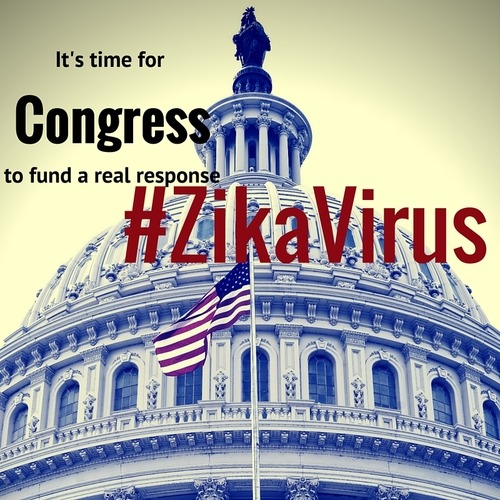Frontline Blog
Get real about minimizing risk of future Zika and Ebola cases
June 2016
This essay was originally published as an op-ed in the Seattle Times on June 12, 2016.
Unreliable funding of public health agencies exposes communities unnecessarily to threats like the Zika virus. An always-prepared national public health system requires sustained support, not the same old political theater.
Special to The Times

THE debate over how to respond to the Zika virus has produced some of the most dramatic political theater seen in Congress since the Ebola outbreak in 2014. It’s an edge-of-your seat drama, and Washington, D.C.,’s media brain trust knows it: a mysterious, life-threatening virus with tropical origins, high stakes for American families and a national leadership at war over how to deal with it.
The international medical community found that Zika causes microcephaly, a debilitating brain defect in fetuses that can prevent a child from ever walking or talking. While the U.S. Congress is making progress, it still has not adopted the emergency funding requested by the White House in February. Instead, the federal government just cut health departments’ emergency-preparedness budgets by 7 percent.
For those in the nation’s public-health departments who are charged with protecting families from getting sick, or expectant parents looking for answers, getting this close to the brink is not very entertaining. We know there will be more Ebolas and Zikas — they will come with different names and symptoms, but they are coming — and we need to be better prepared to deal with them.

First, we can expect to see more Zika cases here at home. But many could possibly have been prevented if Congress had responded to the outbreak sooner. Congress is waiting until the eleventh hour to address this emergency, and there will be repercussions for that inaction.
The best public-health science we have today tells us we need to be prepared for a likely wave of stillbirths and congenital malformations before this is over. Our public-health system, if funded properly, could reduce, but not eliminate, the damage from this outbreak. Unfortunately, experts have seen this sort of preventable tragedy before, and with every public-health emergency our leaders too often fail to react until the nation is at maximum risk.
We need to stop acting shocked every time an outbreak occurs and remember that real disaster readiness is not created overnight — there is a better way to run a country than lurching from emergency to emergency.
Second, we need to invest in and build upon key programs and capacities in the country’s local public-health departments, even when there is not an emergency. With Zika, we have no silver bullet, like an antidote or vaccine. A vaccine is currently being created, but it will most likely take years to reach the market.
The best way to respond to this emergency right now is to use basic, hyperlocal interventions that health departments have routinely practiced and know how to execute well. These include a number of capabilities that often go unfunded on a regular basis, such as outreach to vulnerable populations, public education and risk communication, and connecting the community to health-care providers for treatment.
These kinds of foundational services require large-scale, ongoing mobilization of public-health experts, which takes resources — both time and dollars — to build and nourish. This is public health’s core mission, and it needs ongoing, rather than emergency, support. This outbreak in particular also demands that we can rapidly ensure the availability of contraception and other appropriate reproductive health services and help people limit contact with mosquitoes.
Third, no one would propose selling off firefighting equipment between fires, but that’s exactly what we do with public-health emergencies. Funds for public-health preparedness have been cut by more than 30 percent over the last decade and hospital preparedness funds have shrunk by more than half. This does not make sense. Instead of being always ready for an “all-hazards” response, public-health departments have had to dismantle — and then quickly rebuild — their response capacity for emerging and routine public health emergencies.
Hurricanes and tornadoes will still occur this summer. Meningitis and measles are resurging in many parts of the country. Internationally, Ebola threatens a resurgence if we don’t support the lab capacity and other infrastructure to stop the disease before it again reaches our shores. Many in Congress have suggested using “leftover” Ebola funds to fight Zika, but those dollars actually protect our country from the threat of Ebola and other emergent diseases.
The bottom line is that Congress must commit to fighting Zika immediately and aggressively, with enough time to save thousands of Americans — and their newborn children — from needless pain and suffering. But at the same time, leaders also need to stop the cycle of bringing our nation to the brink with each disaster. The current zigzag of public-health funding strains the system, making all of our communities unnecessarily vulnerable to threats like Zika.
To have a national public-health system that is always at the ready requires ongoing, sustained resources. Americans deserve far better than the same political theater time and again.
David Fleming was director and health officer for Public Health — Seattle and King County from 2007 to 2014 and is a steering committee member of the Big Cities Health Coalition Alumni Council. He currently serves as vice president of Public Health at PATH in Seattle.